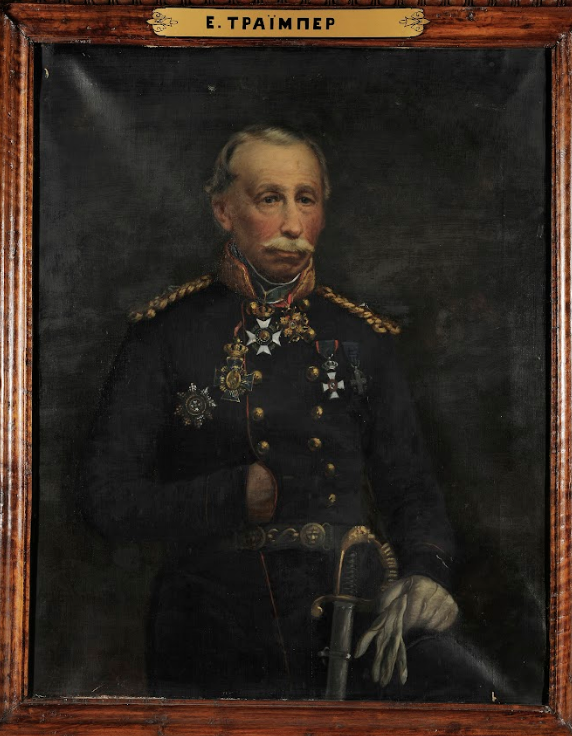Heinrich Treiber ( 1796-1882 )

Heinrich Aloisius Treiber was a German physician. He was born on October 8, 1796, in Meiningen, Thuringia. The son of a court pharmacist, he studied medicine at the universities of Jena, Erlangen, and Würzburg. In 1819 he qualified as a surgeon at the University of Paris. Moved by the news of the Greek uprising, he decided to volunteer to the Greek side. In early 1822, along with dozens of other philhellenes, he landed in Missolonghi and travelled to Corinth to serve as a doctor in the army of Demetrios Ypsilantis. In this capacity, Treiber treated Greek fighters at Peta, Komboti, Gravia, Nafplio, and other areas where the regular corps operated during the early years of the War.
In early 1824, Treiber joined as a physician the corps raised by Lord Byron in Missolonghi. After Byron’s death, he once again joined the regular army corps, which had been reconstituted under the leadership of the Dodecanese colonel Panagiotis Rodios, first, and then the French colonel Charles Fabvier. In the meantime, the landing and advance of Ibrahim’s Egyptian forces in the Peloponnese, at what was a peak period of discord amongst the Greeks, made it imperative to promote unity amongst Greeks. It was to this effort that Treiber, who was present in all the great armed conflicts, made a decisive contribution.
In the summer of 1826, after resigning from the regular army, he took up duties at the Dervenia camp, commanded by Georgios Karaiskakis. He followed Karaiskakis to Athens and fought in the battles of Haidari, Domvraina, and Kastela. He also proceeded to set up a hospital for Greek fighters in Ampelakia on the island of Salamina. It was there that he received the body of Georgios Karaiskakis, who had died one day earlier at Faliro.
In June 1827, Treiber took over as physician on the steam-powered warship Karteria – a position he held for eight months. In April 1828, he became director of the military hospital at Acronauplia. It was Treiber who conducted the autopsy of the body of Ioannis Kapodistrias after the governor’s assassination on September 27, 1831; he also drew up the forensic report and embalmed the governor’s body.
He remained in Greece after the Independence, contributing significantly to the promotion of medical science in the fledgling state. In 1831 he got married to Santa Origoni. She was one of the six children of Dominique Origoni, an officer in the Napoleonic French Navy, and the Athenian Francesca Agapiou. In 1835 he moved with his family to Athens, to become the first head of the Army Health Service. He was one of the first professors at the early Medical School; in 1837 he was made an honorary professor of surgery of the National and Kapodistrian University of Athens. He also served as president of the medical council, the body responsible for the formulation of Greek public health policy. In 1842 he became King Otto’s physician and in 1847 he pioneered the use of ether for anaesthesia in Greece – a method that had been applied for the first time in the United States only one year before.
In 1854, a cholera epidemic struck Athens and Piraeus, carried by the British and French occupation troops during the naval blockade of the Greek coast. Whereas many officials left at the time, Treiber remained in Athens to take care of the sick and was eventually infected. He served in the Greek army for another decade, until 1864, when he was discharged. He died in Athens on April 26, 1882.





